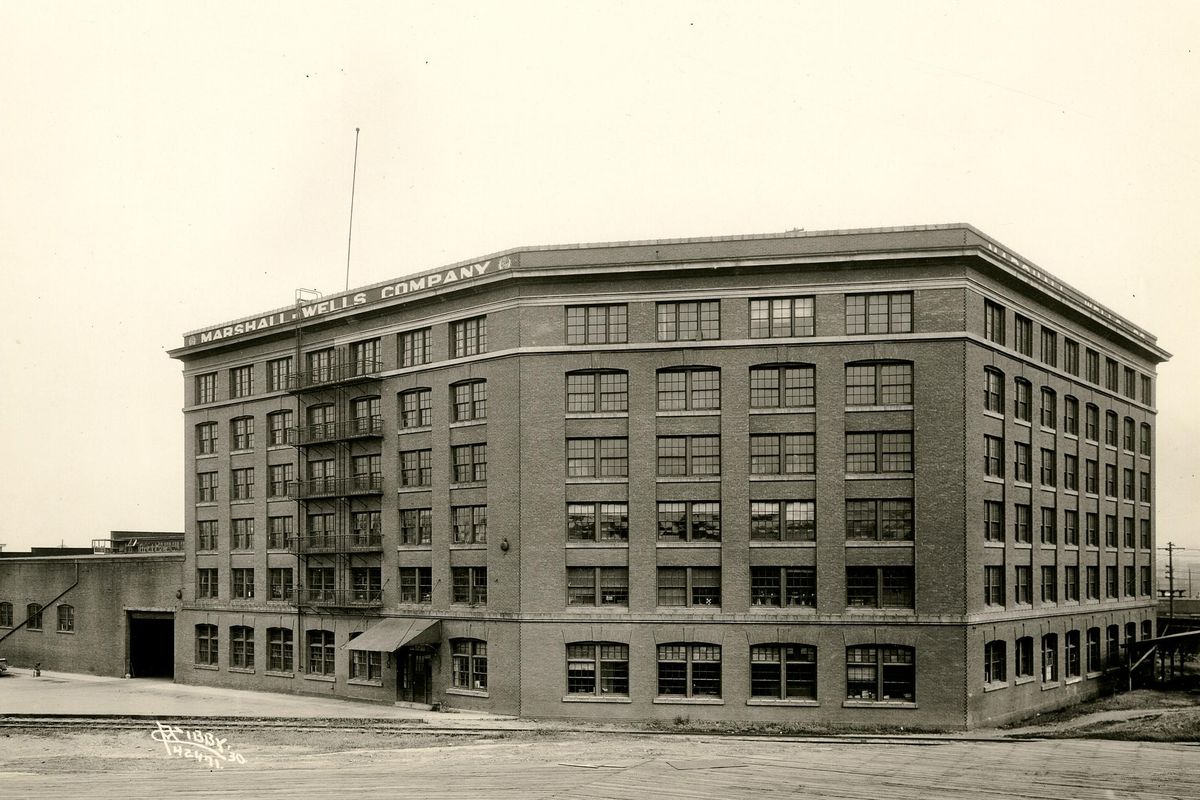Developer chosen by WSU to redevelop Jensen-Byrd says warehouse could be ‘magical’ space

A once-doomed brick warehouse on the edge of downtown may be on the verge of becoming a centerpiece of Spokane’s University District.
Washington State University-Spokane announced last week that a national construction firm that already has invested considerably in Spokane is part of a group that wants to redevelop the warehouse known as the Jensen-Byrd building, which was built in 1909.
WSU, which has owned the building since 2004, asked for bids in October to lease 4.1 acres including the Jensen-Byrd hardware warehouse to redevelop it. One stipulation was to preserve the warehouse.
The winner, which was announced Friday, is a group that includes McKinstry Spokane and Trace Real Estate Services of Seattle. They plan to create a corporation called JB LLC to redevelop the site. (JB, for Jensen-Byrd).
McKinstry is a Seattle-based construction firm that renovated the nearby historic Spokane and Inland Empire Railroad Building adjacent to WSU-Spokane for its Spokane office.
“We like to not only do profitable work in our business but also make a lasting impact,” said Dean Allen, CEO of McKinstry and managing partner of McKinstry Spokane, the LLC that manages McKinstry’s property in Spokane. “It seemed like an opportunity we couldn’t pass up.”
Plans are only in draft form, but Allen said the project could cost $50 million or more. He’s hopeful that construction will start in 2017.
The winning group will now negotiate with WSU to determine the details of an agreement.
WSU-Spokane Chancellor Lisa Brown said JB LLC was one of two finalists interviewed by the university. Its proposal stood out in part because of its “commitment to tying together the past to the future to the property.”
Another important factor in its selection was its experience, Brown said. McKinstry’s website says it has 1,800 employees and 24 offices and earns about $500 million a year in revenue. Trace Real Estate Services has redeveloped several properties on Lake Union in Seattle.
McKinstry usually is hired by other companies or governments for construction projects, but Allen said it has significant experience as a developer.
“We don’t often look at ourselves as a developer when we look in the mirror,” he said.
With its location on campus, but close to downtown, the building has many potential options.
“We definitely see it as potentially a gateway that connects the campus to downtown Spokane,” Brown said. “It will be an intersection of campus – students, faculty and staff – as well as community members.”
Allen said McKinstry will listen to the university and community when designing the project. He believes that restaurants and other retail businesses are likely on the ground floor and other space could be taken for an athletic facility, which the campus currently lacks, and office space, particularly for businesses in line with the campus’s health science mission. He said he’s open to including living units in the building, but questions if residential would make economic sense.
Plans announced by the university in 2011 to demolish the warehouse galvanized historic preservation advocates, who pushed WSU to save it. Texas-based Campus Advantage, which had agreed to buy the Jensen-Byrd warehouse to tear it down and develop the land, backed out in 2012.
The Jensen-Byrd warehouse was built by the Marshall-Wells Hardware Co. of Duluth, Minnesota. At the time, the company was expanding quickly and soon would be known as the largest hardware wholesaler in the world.
But in the late 1950s, Marshall-Wells folded, and its Spokane warehouse was sold in 1958 to Jensen-Byrd, a local hardware company that is now based on the West Plains.
One significant problem with redeveloping the building is short ceiling height, only 9 feet on many of the six floors.
One potential option is to remove the floors and construct fewer new ones with taller ceilings.
“It’s going to take some real innovation,” Allen said. “We have a real opportunity to create magical spaces.”